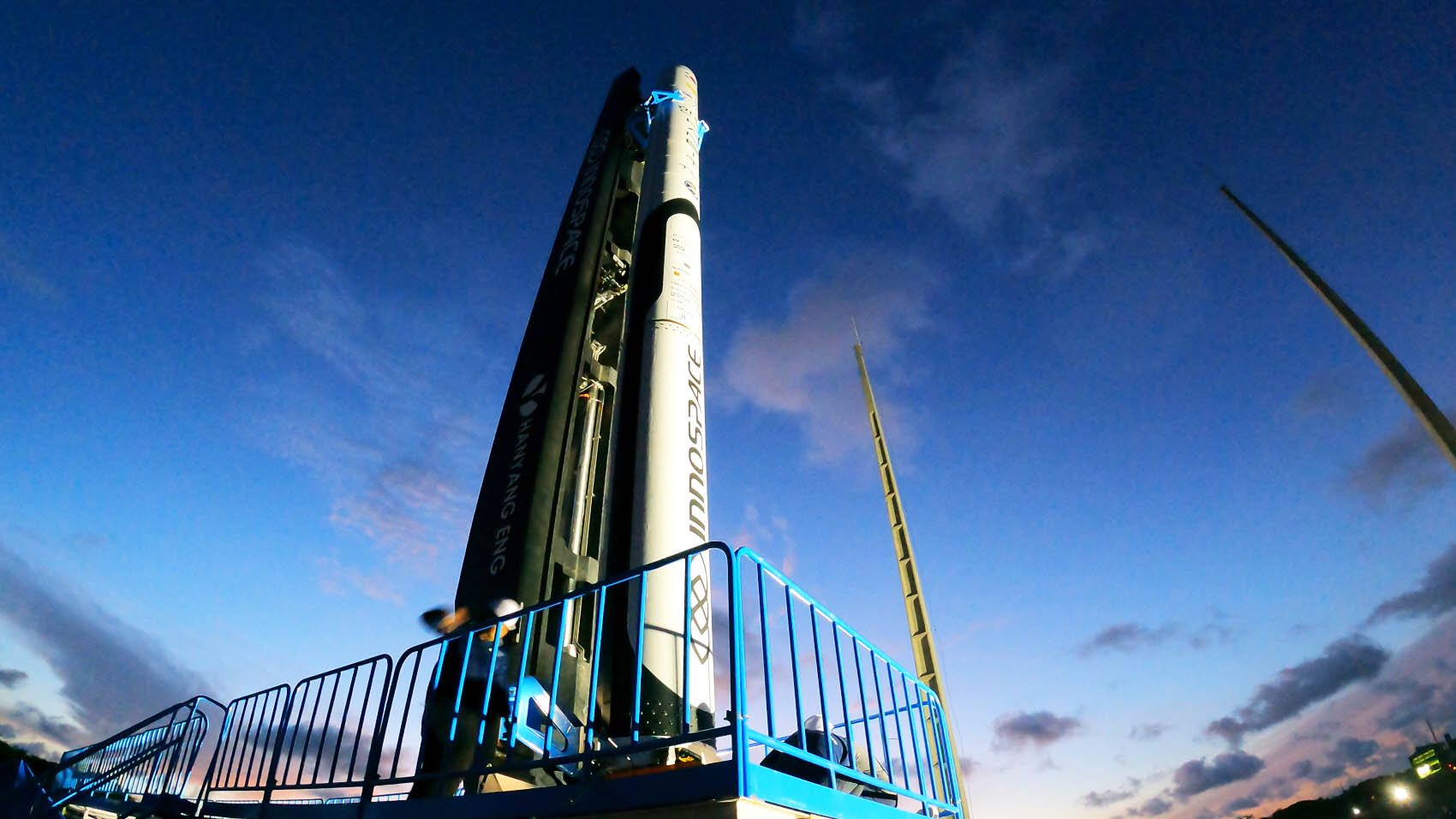South Korean private spaceflight startup for small satellite launch vehicles INNOSPACE has set new launch window from March 7 to March 21 for the HANBIT-TLV first test flight from Brazilian soil to verify the flight performance of the 15-ton thrust single stage hybrid engine.
An exact launch date and time is being announced after completing checkups for technical preparations and weather conditions in cooperation with the Brazilian Air Force and the Brazilian Department of Aerospace Science and Technology (DCTA). Weather conditions are expected to be one of the biggest concerns in determining the launch due to it being the rainy season in Brazil.
The HANBIT-TLV will lift-off from INNOSPACE's own launch pad at the Alcântara Launch Center within the Brazilian Air Force facility, which is considered as the one of the best launch sites in the world due to its proximity to the equator.
The test launch was originally scheduled to launch for last December but an initial attempt was called off due to an unexpected synchronisation error between the safety management system of the launch centre and the ignition system of the HANBIT-TLV.
After completing full checkups - from transmissions of electrical signals to a synchronisation programm - and INNOSPACE and Centro de Lançamento de Alcântara (CLA) teams confirmed that the systems had no issues.
"The first-stage rocket engine, which has the largest thrust and the most complicated structural system, is considered a core technology, and the performance verification test of a first-stage rocket engine is an important process to secure an original launch vehicle technology, said Soo Jong Kim, CEO of INNOSPACE.
“As we have currently reached the engine flight test step after the in-house design and development of the rocket engine, assembly and manufacturing of the launcher, we endeavour to successfully launch HANBIT-TLV by more closely checking various factors such as technical preparations, facilities and weather conditions.”
The HANBIT-TLV launch is intended to validate the first stage engine of HANBIT-Nano, which is a two-stage small satellite launcher capable of carrying a 50 kg payload. HANBIT-TLV is a 15-ton thrust single stage hybrid rocket with a height of 16.3 m, a diameter of 1 m and weight of 8.4-ton.
In accordance with an agreement signed with DCTA last April, the HANBIT-TLV will carry Brazil’s SISNAV payload, an inertial navigation system being developed by DCTA and other institutions.
INNOSPACE was founded in 2017 and is developing hybrid rocket-powered small satellite launchers (HANBIT) to provide low-latency, low-cost and reliable launch services in today's rapidly expanding small satellite market. INNOSPACE has offices in South Korea, Brazil and France and is expanding global business opportunities in the aerospace industry.
INNOSPACE targets test launch from Brazlian base











